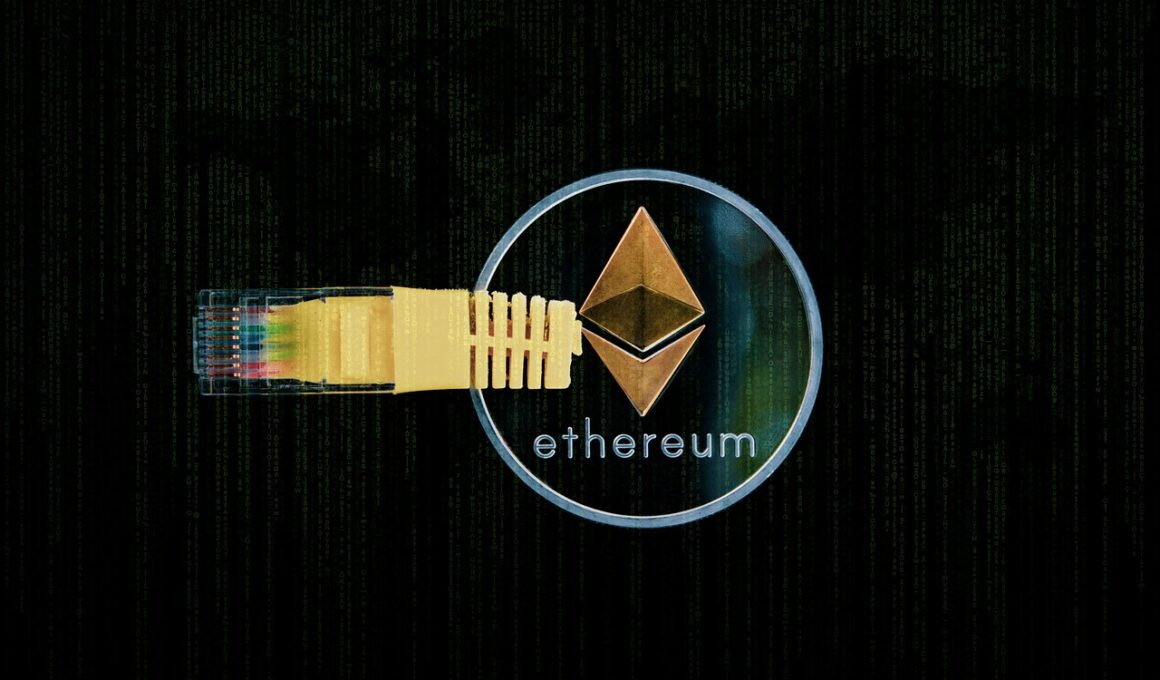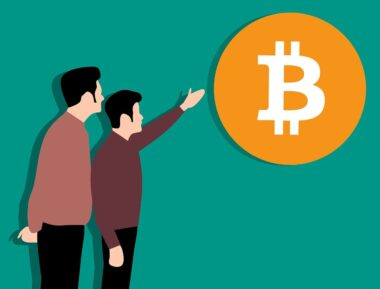How Governance Tokens Empower DeFi Communities
Governance tokens have emerged as vital tools for ensuring decentralized governance within the burgeoning decentralized finance (DeFi) ecosystem. These tokens allow holders to participate in decision-making processes that shape the future of DeFi protocols. By distributing governance rights among users, projects foster a sense of community ownership and accountability. Holders of these tokens can vote on key issues, including protocol upgrades, fee structures, and other essential aspects. The decentralized nature of governance tokens empowers communities by eliminating reliance on centralized authorities. This shift toward community-driven governance aligns with the principles of decentralization, transparency, and inclusivity, which are crucial to the growth and sustainability of the DeFi space. The importance of governance tokens cannot be overstated; they provide users with a direct say in the development and future direction of the platforms they use. As the DeFi landscape continues to evolve, governance tokens will play a central role in facilitating democratic participation and ensuring that platforms remain responsive to the needs and desires of their communities, resulting in more resilient and innovative financial systems, fostering trust among users and encouraging deeper engagement with these decentralized platforms.
Governance structures utilizing these tokens often include mechanisms for decentralized voting. Voting may occur through various formats, from simple majority decisions to more complex consensus protocols. Many DeFi platforms utilize smart contracts to ensure the voting process is transparent and tamper-proof. Users holding governance tokens can submit proposals that reflect the community’s needs and vision. Moreover, the active involvement of token holders enhances the sense of purpose among community members. This peer-to-peer engagement is pivotal as it drives the co-creation of valuable financial products. In contrast to traditional finance, where decisions are made by a centralized authority, DeFi’s decentralized governance represents a paradigm shift. Community-driven initiatives empower users to actively shape their financial destinies while also contributing to the broader DeFi movement. Furthermore, governance tokens can also be used to incentivize participation. By distributing tokens as rewards for voting or engaging in governance-related activities, platforms create an ecosystem where users are motivated to have their voices heard. This not only enriches the decision-making process but also reinforces the collaborative spirit that is essential for DeFi’s success.
The Role of Governance Tokens in Community Engagement
Governance tokens play a crucial role in enhancing community engagement within decentralized finance ecosystems. They create avenues for user participation and voice in critical decision-making processes. For instance, holders are often incentivized to actively vote on proposals or participate in discussions related to protocol changes or new features. This engagement fosters a deeper connection between users and projects, enhancing loyalty and commitment to the platform. Moreover, governance tokens facilitate transparency and accountability in the DeFi sector. Users can easily track governance actions, proposals, and voting outcomes through the blockchain. This transparency builds trust among participants, enabling communities to play an active role in shaping their financial platforms. Notably, significant proposals often require broad community consensus, which enhances collective efforts within the ecosystem. Active participation motivates members to learn more about governance and the project’s overall operations. As members contribute their thoughts and votes, they gain a sense of accomplishment, knowing they play a part in shaping the project’s future. Thus, the dynamic interplay between governance tokens and community participation amplifies the overall growth and innovation of DeFi, fostering more robust financial communities.
Some DeFi projects integrate multi-token governance, where different tokens represent varying levels of influence in decision-making. This approach allows projects to fine-tune governance mechanisms based on the diversity of their community members. For example, larger stakeholders might have more voting power in specific issues while smaller holders still contribute their opinions. This nuanced governance could prevent the concentration of power among a few entities or individuals, ensuring a more equitable system. Additionally, pioneering governance token models encourage the development of compelling economic models. These incentives drive token holders to partake actively in voting and governance, leading to healthier ecosystems. Projects designed with participatory features encourage collaboration and engagement, creating an environment where ideas can flourish. Furthermore, the ability for community members to create proposals and vote on initiatives reinforces democratic principles within DeFi. With time, this level of engagement influences the perception of DeFi in broader financial contexts, making these systems more appealing to traditional finance participants. As communities mobilize around shared visions, they contribute to building a better financial future for all involved, forging connections that enhance the overall fabric of decentralized finance.
Challenges in Governance Token Models
Despite the advantages of governance tokens in DeFi, several challenges may arise in their implementation. One major concern is voter apathy, as many token holders fail to participate in governance due to a lack of understanding or interest in the governance process. This disengagement can lead to decisions being made by a small group of active participants, undermining the democratic principles that governance tokens aim to uphold. Moreover, there is a risk of centralization if a few individuals accumulate a large number of tokens, enabling them to influence decisions disproportionately. To address these challenges, projects may implement strategies to incentivize participation, such as offering rewards for voting or creating easier pathways for members to engage with the governance process. Furthermore, educating community members on governance mechanisms is essential for driving participation. Improving the accessibility of information regarding current proposals and their implications can empower users to make informed decisions. Also, exploring mechanisms that limit the voting power of large stakeholders could promote a healthier distribution of influence, ensuring that more voices are heard within the governance structure. Balancing these aspects is vital to the success of governance tokens and the overall integrity of DeFi governance models.
Another challenge is the frequent volatility of governance token prices, which can impact the perceived value of holding them. Sudden price fluctuations may deter participation by making holders more focused on short-term profits rather than engaging with governance processes. Market conditions can also affect the ability of token holders to act decisively on proposals. If governance tokens lose value significantly, users might be hesitant to invest time and effort into governance activities. Furthermore, the technical complexities surrounding governance mechanisms may intimidate less experienced users. This barrier to entry can lead to a limited representation of voices within governance discussions. Addressing these issues requires ongoing efforts in community building and support systems. By offering resources, forums, and educational campaigns, projects can reduce barriers and encourage participation from a broader audience. Additionally, simplifying the proposal process and allowing for smaller incremental changes can help maintain user engagement. This approach helps ensure that the governance process remains active, fostering an environment in which diverse perspectives can thrive. Ultimately, overcoming these challenges is essential for the successful integration of governance tokens within DeFi ecosystems.
Future Prospects of Governance Tokens in DeFi
The future of governance tokens in decentralized finance holds immense potential for enhancing the DeFi landscape. As more users recognize the significance of participating in governance, project teams will likely invest in frameworks that empower community involvement further. Advanced governance models may emerge, incorporating innovative features such as quadratic voting or treasury management via DeFi protocols. These mechanisms could provide a more equitable and inclusive voting process, ensuring that all members have a voice regardless of their token holdings. Moreover, the integration of cross-platform governance could alleviate fragmentation across DeFi ecosystems, allowing users to influence multiple projects with a single governance token. This evolution could significantly enhance community engagement, providing a sense of purpose to holders while driving collaboration among diverse DeFi projects. Furthermore, partnerships between established financial institutions and DeFi platforms might shape the future landscape of governance tokens. Such collaborations could enhance credibility and attract wider participation, bridging the gap between traditional finance and DeFi. As governance tokens continue to evolve, the integration of comprehensive infrastructures and community support will dictate their effectiveness in shaping the future of the financial systems.
In conclusion, governance tokens represent a pivotal component of the decentralized finance movement. They empower communities by enabling users to participate actively in decision-making processes that affect the protocols they utilize. By distributing governance rights and fostering engagement, these tokens create a more transparent and democratic financial system. The ongoing development of governance models and strategies is crucial for overcoming challenges related to participation and centralization. Innovations in governance structures will continue to emerge alongside DeFi’s evolution, paving the way for more resilient and adaptive financial ecosystems. As user engagement increases, governance tokens will likely evolve to meet the needs of a diverse user base. Education and resource initiatives will play a vital role in ensuring that participants can navigate governance processes comprehensively. Ultimately, the future of governance tokens in DeFi is bright, with prospects for improved community engagement and sustainable platforms. As more users become aware of their influence on governance, they will increasingly contribute to shaping the financial landscape. As DeFi unfolds, governance tokens are set to empower communities, fostering a new era of decentralized finance that embraces innovation and inclusivity.





